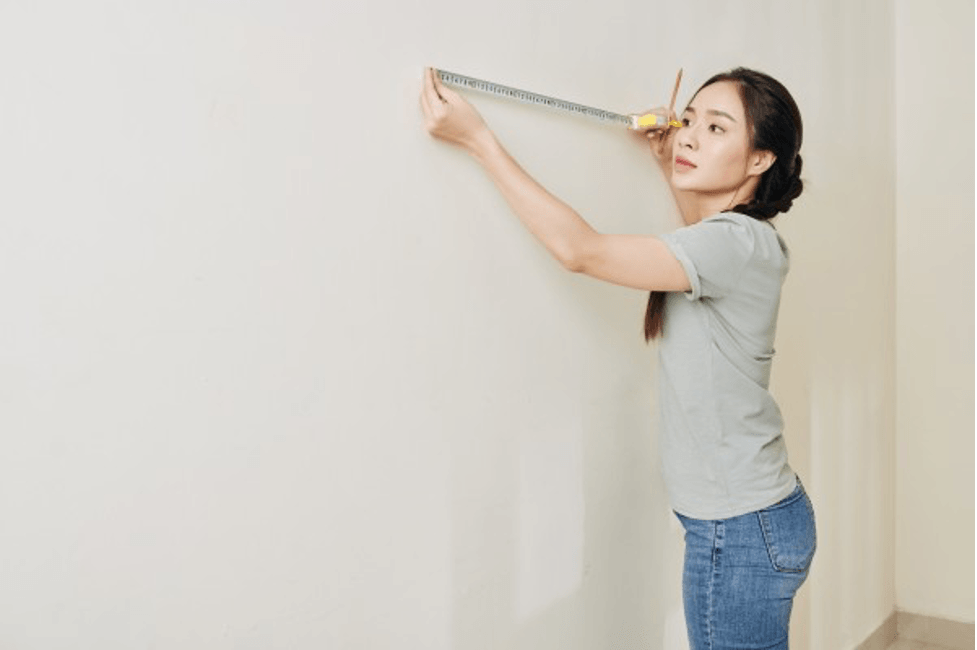CALL US TODAY · (727) 542-3357
Blog
BLOG
Learn More About What is Happening in the Mortgage Industry
Articles

By Beth Hazen
•
April 13, 2022
WHAT IS MY HOME WORTH? AND, WHY DO I NEED TO KNOW? What Does Home Value Mean? The value of your home is what another buyer is willing to pay to purchase it. And this amount is made up of several components that affect your property’s value including internal and external data. Market – The real estate market for the past couple of years has been a seller’s market where there are more buyers than homes for sale. This more in demand than supply of homes buying arena, created bidding wars and people paying over asking price in many real estate markets. How did we get here you might ask? One of the reasons, were all the Millennials in the real estate market as first-time home buyers which were taxing an already depleted supply of available housing. Speaking of depleted supplies, CoVid put a kink in our supply chain of building materials and appliances needed to complete new home builds. Again, putting most of the buyers in the real estate market for already existing homes. And with a limited supply of homes on the market, even when people wanted to sell their homes, they had to think about where they were going to move to. For some, this was a no brainer in their situation, take the money and move. Others, stayed put. What does all this mean? The housing market the last couple of years showed major appreciation in home values. Location – In general, homes located in desirable locations or neighborhoods command a higher asking price or, home values. Just think about it, if most of us could afford the house on the beach, we would be living there. Besides desirable geographical location, other factors increasing home values are: neighborhoods with a low crime rate, access to nearby highways, shopping centers, restaurants, medical centers, and entertainment. School District – The National Association of Realtors reports that 26% of recent homebuyers are influenced by the quality of the school district when selecting where to live. That percentage increase to 46% with homebuyers between the ages of 30 to 39. Size – The size of your home and/or property will also affect its real estate market value. Condition – If a new roof or other expensive home repairs are needed, it will affect the value of your home in a negative way. On the flip side, any home improvements like a pool, updated kitchen or other renovations could increase the value of your home. (Home improvements need to be thought out if being done for a return on investment when selling a property.) Comparable Homes – When shopping, buyers will often look what other houses in the area were sold for to create a value of what they believe your home is worth. And property appraisers will compare your home to other comps in the area. All of these components are taken into consideration when arriving at a numbered value. And you can get a rough idea on your own by pulling real estate comps of comparable homes in the area by using online sites listing nearby properties that recently sold. This is the cheapest method because it is free and easy. But to get a more accurate value, it is best to consult with a realtor or hire an appraiser. Why Should I Care About My Home’s Value? Home values change over time depending on home improvements, real estate market, local growth, and the economy to name a few. Therefore, it is good to check your home’s value periodically. So why should you care about your home’s value? Let’s look at the A,B,C’s of the best reasons for knowing: A – Asset Your home is more than likely your biggest asset and it is good to know the value to keep a pulse on your financial health. Knowing this number will let you know what your asset is worth. It will all give you a number to go by if you are interested in selling, refinancing, checking on insurance coverage, and/or knowing if you are overpaying for annual property taxes based on your home’s value. B – Borrowing Power It is good to know how much you owe on your home and its current value. By knowing your home’s value, you empower yourself to make important financial decisions. These financial decisions can include things like financing your child’s college education, paying for home improvements, refinancing for lower rate and better terms, etc. C – Cash Out A cash-out refinance will allow a homeowner to tap into their built-up home equity at a fixed rate. This will allow a homeowner to take out a new mortgage with a higher loan amount than what you currently owe. Some homeowners may be able to borrower up to 80% of their loan to value ratio, still leaving 20% home equity. Often, homeowners can find a lower interest rate than what they had. D – Damages/Disasters Knowing your home’s value helps you make sure you have enough home owner’s insurance coverage to cover any damages to your home from vandalism, mother nature, or other disasters. Did you make improvements? Are they covered in your current plan? Knowing your home’s value and then speaking with your home owner’s insurance agent, will allow you to make sure that your policy covers contents inside your home, clothing, and living expenses should something happen. E - Equity With the increase in appreciation, many people have discovered they have built accrued equity. While it is important to know the equity you have built up in your home if you sell it, it is also equally important to know the equity in your home if you keep it. The equity built up in a home can be used: to borrow against the home for a HELOC (Home Equity Line of Credit) (adds a 2 nd mortgage) to add value to your property through a refi for home improvement F – Family Dynamics Change Babies are born, children go off to college, job changes, people move in and people move out, etc. With these life changes, sometimes homeowners need to purchase a bigger home. Other times, they need to downsize. Knowing the value of your home allows you to know when the best time is for you to make those important life changes such as selling to downsize into a smaller home, unloading that extra property you don’t use, or to relocate to a different area. Since CoVid 19, real estate has appreciated and homes have been in high demand. It has been a seller’s market the last couple of years. Prices are up and interest rates are still low. If your home has improved in value, you might want to tap into some of that equity and refinance your mortgage at a lower interest rate or to remove mortgage insurance. On the other hand, if the value of your home has decreased, you might want to see about adjusting your property taxes or insurance. Whatever the case may be, it is good to know the value of the biggest asset you own. And if you decide that you would like to discuss options regarding refinancing, HELOC, getting out of an FHA and into a conventional loan, checking on removing mortgage insurance, as well as other potential options, please reach out me to share your plans and we will discuss what option fits your plan(s) the best. Palm Harbor Mortgage Advisors, Inc. Palm Harbor Mortgage Advisors is a family owned and operated business for over 20 years with a combined 43 years of industry knowledge. We are located in Palm Harbor, Florida. Our in-house loan processing, with wife’s company, makes a huge difference by removing obstacles and barriers throughout the loan process to get the borrower to the closing table on time. We specialize in mortgages for first-time homebuyers, conventional home mortgages, self-employed borrowers, refinance loans (refis), reverse mortgages, Jumbo Loans, FHA Loans, VA Loans, and USDA Loans. Please contact us to see how we can help by calling us at 727-542-3357 or completing a loan application here jameslstojak.zipforhome.com .

By Jim Stojak
•
June 21, 2021
A Certified Mortgage Advisor has been extensively trained and tested in all aspects of mortgage backed securities, treasuries, and bonds to be better equipped to offer you products and to help you understand how to use mortgage debt to build sustainable, lifelong wealth.

By Barry Habib
•
June 21, 2021
Barry Habib, founder and creator of CMA, has been named Crystal Ball Award winner for the most accurate forecast in real estate in the US. He has also been on tv to help the consumer understand the markets and how it affects real estate and the mortgage industry. A home is probably the biggest purchase you will ever make. It affects every family differently. The amount you borrow is impactful and really should be structured into a long-term plan to help you with your retirement and maybe with college planning as well. It is a very important decision, getting a mortgage. So, Barry created CMA because he wanted to help mortgage advisors better advise you. And those who have been through CMA training and testing, have been made much better equip to help you about products and to help you into the future.

By Jim Stojak
•
June 15, 2021
Your moving day is set and it’s time to start preparing. As you’re making your lists and checking them twice, don’t forget to factor in your family pet, which most of us consider to be a member of the family. Here are some tips for making sure the process goes smoothly. Readily Available Moving Kit/Box . Have an easily accessible kit with enough food, water, bowls, toys, leashes, waste bags, kitty litter, medicine, medical record(s) and anything you may need in the next day or few days depending on your move. This will save you from having to dig everywhere looking for necessities or important items you may need. Medical records. When moving to a different city or state, one of the main things you need to take into consideration is finding a new veterinarian that is the right fit for you and your pet. If you have family or friends in the area, ask for recommendations or do your own research by reading reviews or asking those involved in your move (realtor, mortgage originator, etc) who they would recommend. Once you find a veterinarian, contact your current vet to initiate a transfer of medical records. Then schedule a “get to know you” appointment shortly after your move. Contact Information. Make sure you update information on pet’s microchip and tags. This way, if the pet gets loose, there will be current contact information about you. Have current photos of your pet(s) in case they get loose and you need to post on social media, share with a shelter to look for, or posters in the area. Transportation. Whether it’s a short drive or a long plane ride, your pet will likely need to be put into a carrier. For most pets, this is a foreign concept and they require time to get comfortable with it. Start acclimating your pet as early as possible and use comfort items like treats and favorite toys and blankets to make the experience a positive one for your pet. Moving in . Think a move is stressful on you? Just imagine your pet who has no clue what is going on, hasn’t been included in the conversational loop, and wonders who all the strange people are in their home. While the movers are still hard at work, keep pets safely away from foot traffic to reduce stress. Pay attention to the temperature where your pet is placed. Be sure to tell all parties involved in the move, where the pet(s) are located. An open door might be an opportunity for a quick escape (not for you) in which a pet can easily get lost in a new environment. Acclimation. Once movers have left, make sure to clear anything that could be dangerous and block off areas as necessary, then allow the furry family members to explore their new environment. Non 4 Legged Pets. Remember all pets can feel stressed during a move. For fish, a move can be traumatizing, if not fatal. Please check with your local aquarium for supplies and details on moving with your fish. Make sure your fine feathered friend doesn’t fly the coop during the move. I have read it is best, to keep bird friends in a cage with things they are familiar with to help lessen the stress and keep them protected.

By Jim Stojak
•
May 6, 2021
Refinancing your mortgage is something most homeowners consider at least once throughout the lifespan of their home loan. It allows you to pay off your previous loan by applying for a new one that has better financial advantages. While there are many good reasons to refinance, here are five common ones. • Scoring a lower interest rate. The number one reason homeowners decide to refinance is to secure a lower interest rate on their mortgage. Not only does this save you money in the long run and decrease your monthly payment, but you can start building equity in your home sooner. • Using an improved credit score. Even if interest rates have not dropped in the market, if you’ve improved your credit score over the last few years, you may be able to reduce your mortgage rate. • Shortening the loan’s term. If interest rates are decreasing, there is a chance you may be able to get a shorter loan term with little to no change in your monthly payment, allowing you to pay off your loan sooner. • Switching from an adjustable rate to a fixed rate. If you chose an adjustable-rate mortgage with great introductory rates when you initially financed your home, that rate may increase significantly over the years. By switching to a fixed rate while interest rates are low, you can protect yourself from future increases. • Cashing out home equity. If there is a big purchase or payment on the horizon, such as funding a wedding or going back to school, your best option may be to use the equity you’ve built in your home to borrow money at a lower cost.

April 28, 2021
Outdated kitchen. Overrun backyard. Unusable basement space. If you have a home renovation project on the mind, the first thing you have to consider is how you are going to finance it. Here are the most common options to make your dreams become a reality. Cash. Paying in cash is the most straightforward financing option, just save until you have enough money to cover the expenses. This will help eliminate spending outside your budget; however, it can also extend your timeline. Mortgage Refinance . If you’ve been making payments on your home for a few years and your interest rate is higher than current market rates, you may be eligible for a mortgage refinance, reducing your payments and freeing up some money. Cash-Out Refinance. You can tap into your home equity and borrow up to 80 percent of your home’s value to pay off your current mortgage plus take out more cash to cover the renovations. This option is encouraged only when you’re making improvements that will increase the value of your home, as it can add a lot of interest and fees. Home Equity. Getting a home equity line of credit allows you to borrow money against the value of your home. You receive usually up to 80 percent of your home’s value, minus the amount of your loan. Retirement Funds. Homeowners can consider pulling money from a 401K or IRA account, even though they aren’t specifically meant to cover a home renovation. This option might incur additional penalties or tax payments, but may be worth it when making improvements that will benefit them financially in the long run.
PALM HARBOR MORTGAGE ADVISORS, INC.
LICENSE NUMBERS
Palm Harbor Mortgage Advisors, Inc. NMLS: 1948608
Jim Stojak NMLS: 242917





